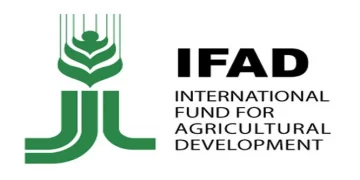The Nigerian Association For Cleft Lip and Palate (NACLP) has called for the registration of cleft care in the National Health Insurance Authority (NHIA).
The association made the call yesterday at its 4th Annual Scientific Conference, themed: “Building a Holistic Approach To Cleft Lip and Palate Care in Nigeria from Surgery to Rehabilitation and Beyond,” in Abuja.
President of the association, Prof. Fadekemi Oginni, said registering cleft care in NHIA, will provide cleft patients with access to healthcare from when they are born, and will prevent parents from looking for alternatives, which sometimes are horrible.
“If NHIS can register these kids, the implications will just be that, care is available to them when they are born. If that is not there, parents have the reason to be thinking of alternatives, and some of the alternatives are horrible, including taking the lives of the children,” she said.
“With NHIS actively behind us, we are good to go. If foreign supports stop coming, we can still stand alone as a people,” Oginni added.
She highlighted patients availability and inadequate manpower, amongst others as some of the challenges encountered by the association in its years of providing cleft care services.
Speaking on stigmatisation, senior programme manager, Smile Train, West Africa, Victoria Awazie, said “Alot of cleft patients are stigmatised, and because of stigmatisation, some of them are killed at birth.”
She stated that the organisation which has been in Nigeria since 2007 ensures that children born with cleft lip and cleft palate gets the attention they need for free, by empowering local medical professionals to be able to offer services to the patients.
On his part, the permanent secretary, Federal Ministry of Health, Olufunso Adebiyi, said even though Orofacial cleft is one of the most common congenital defect affecting children, it has unfortunately remained a major neglected condition in our society, associated with social stigmatisation and limited social interaction of the affected person leading to medical, psychological, emotional and mental stress.
However, Adebiyi hailed the NACLP for their effort in putting smiles in the faces of children and and families affected. He also on behalf of the FMoH, commended Smile Train for their work in the country for the past 15 year, by creating visibility around orofacial disorders and increasing the capacity of medical experts to manage them in the country.
“These efforts have improved the quality and access to care and treatment to more affected persons and in the reduction of the burden of the condition in the country,” he said.
He restated the commitment of the FG towards the improvement of desirable quality care, including Orofacial care, in the country.
The chairman, Local Organising Committee, NACLP, Dr Seidu Bello, called for more awareness about orofacial cleft.
“There are many people in rural areas that when they give birth to children with cleft, they are still confused.
“The goal is to create more awareness, such that where ever you are in Nigeria, when a child is born with cleft, somebody somewhere will be able to direct the family to where they can access care. Let everybody be educated that these problems are correctable”, Bello said.




